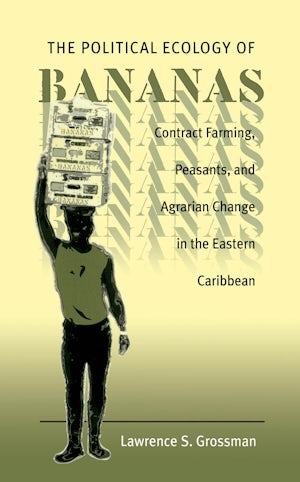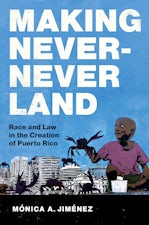The Political Ecology of Bananas
Contract Farming, Peasants, and Agrarian Change in the Eastern Caribbean
By Lawrence S. Grossman
296 pp., 6.125 x 9.25, 14 illus., 4 maps, 32 tables, notes, bibl., index
Not for Sale in the Caribbean
-
Paperback ISBN: 978-0-8078-4718-3
Published: July 1998 -
E-book EPUB ISBN: 978-0-8078-6182-0
Published: November 2000 -
E-book PDF ISBN: 979-8-8908-6946-3
Published: November 2000
Buy this Book
- Paperback $55.00
- E-Book $29.99
Awards & distinctions
A 1999 Choice Outstanding Academic Title
Grossman challenges the conventional wisdom on three interrelated issues central to contract farming and political ecology. First, he analyzes the process of deskilling and the associated significance of control by capital and the state over peasant labor. Second, he investigates the impacts of contract farming for export on domestic food production and food import dependency. And third, he examines the often misunderstood
problem of pesticide misuse. Grossman's findings lead to a reconsideration of broader debates concerning the relevance of research on industrial restructuring and globalization for the analysis of agrarian change. Most important, his work emphasizes that we must pay greater attention to the fundamental significance of the "environmental rootedness" of agriculture in studies of political ecology and contract farming.
About the Author
Lawrence S. Grossman is professor of geography at Virginia Polytechnic Institute and State University.
For more information about Lawrence S. Grossman, visit
the
Author
Page.
Reviews
"A rich portrait of the history and current state of banana farming in St. Vincent . . . a tour de force in demonstrating the virtue of detailed local knowledge and of bringing 'ecology' back into political ecology."--Economic Geography
"A rich, geographically contextualized volume. . . . Grossman's application of the political ecology framework to an analysis of the impact of globalization on peasant agriculture constitutes a ground-breaking accomplishment. . . . The result is a relatively rare outcome in which a highly theoretical work has clear human applications presented in a manner that, with adaptations to account for local differences, can be extrapolated to the realities of millions of others in similar situations in marginalized agrarian communities around the world. . . . Will interest anyone who is concerned with the Caribbean or with agricultural issues more generally."--Geographical Review
"Lawrence Grossman demonstrates that peasant persistence in export production is related less to the resilience of household economies than to the interests of the multinational firms that market peasant produce in the developed world. . . . This careful, insightful, frequently brilliant analysis of contract farming reveals the constraints and opportunities of the contemporary global system, and restores some measure of agency to the peasant communities that are involved in it."--Journal of Political Ecology
"A wide-ranging, intellectually challenging, and substantive work. . . . A detailed, scholarly contribution combining judicious use of data and penetrating analysis. Highly recommended."--Choice
"This book makes a major contribution to the research on the application of regulation theory and Fordist and post-Fordist practices in agriculture. As a study of the grassroots impact of global trade policies, it will be valuable to Caribbeanists, anthropologists, economists, and agriculturalists, as well as geographers."--Janet Momsen, University of California, Davis
"This book is a welcome addition to a growing and increasingly charged literature on transnational firms and contract farming in the 'South.' By drawing on concepts from geography, ecology, and anthropology, and by skillfully presenting a wealth of local data, Grossman makes his book accessible to a range of disciplines and scholars. If there is a single lesson that can be drawn from the work, it is that even under the most constraining of circumstances (i.e., contract farming) Caribbean peasants maintain a range of creative strategies of resistance and survival."--Peter D. Little, University of Kentucky




